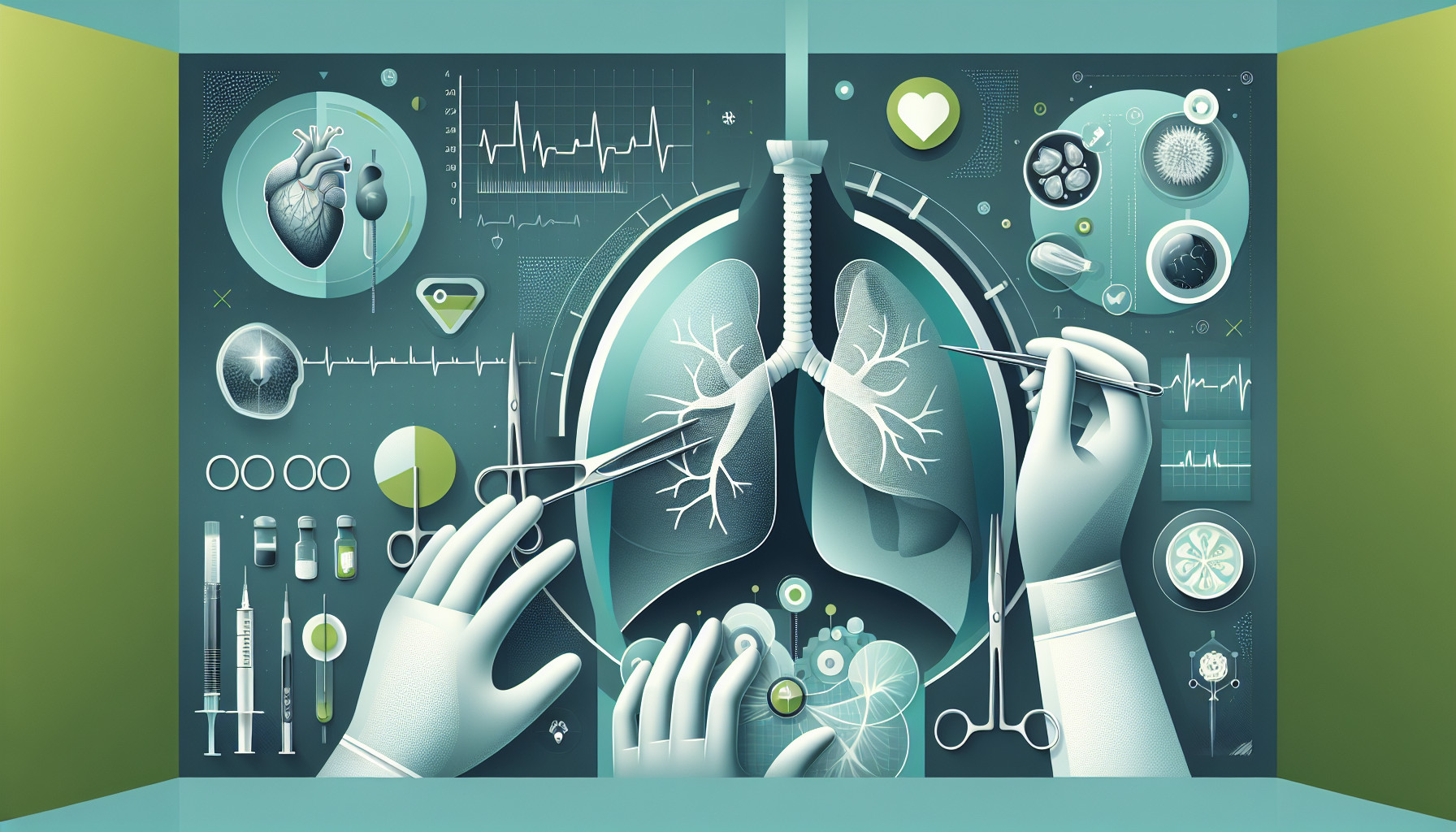Our Summary
The research paper discusses a study that tracked depressive symptoms in lung transplant recipients over a three-year period. The researchers found that depression symptoms generally improved after a lung transplant. However, if depressive symptoms got worse, they were associated with a decrease in lung function and an increased risk of death. The study suggests that worsening depression could be an early warning sign of chronic lung problems after a transplant. Therefore, monitoring and managing depression could be a way to improve lung function and potentially prevent death in lung transplant recipients.
FAQs
- Did the study find a correlation between depression symptoms and lung function in transplant recipients?
- Can worsening depression potentially be an early warning sign of chronic lung problems after a lung transplant?
- How could monitoring and managing depression improve outcomes for lung transplant recipients?
Doctor’s Tip
A doctor might advise a patient who has undergone a lung transplant to be vigilant about monitoring their mental health and seeking help if they notice any worsening symptoms of depression. It is important to address any mental health concerns promptly to potentially improve lung function and overall outcomes post-transplant. Regular follow-up appointments with a healthcare provider can help to monitor both physical and mental health aspects of recovery.
Suitable For
Patients who are typically recommended for a lung transplant are those with end-stage lung disease, such as chronic obstructive pulmonary disease (COPD), idiopathic pulmonary fibrosis, cystic fibrosis, and pulmonary hypertension. These patients have severe lung damage that significantly impairs their ability to breathe and function normally. Lung transplant may be recommended when other treatments, such as medications or oxygen therapy, are no longer effective in managing their condition. Additionally, patients must meet certain criteria, such as being physically fit enough to undergo surgery and having a good support system in place for post-transplant care.
Timeline
Before a lung transplant:
- Patient is diagnosed with a severe lung disease such as cystic fibrosis, COPD, or pulmonary fibrosis
- Patient undergoes extensive medical evaluations and testing to determine if they are a suitable candidate for a lung transplant
- Patient is placed on a waiting list for a donor lung, which can take months or even years
- Patient may experience worsening symptoms of their lung disease, such as shortness of breath, fatigue, and coughing
- Patient may undergo pulmonary rehabilitation to improve their lung function and overall health while waiting for a transplant
After a lung transplant:
- Patient undergoes the lung transplant surgery, which typically takes several hours and requires a hospital stay of 1-2 weeks
- Patient will need to take immunosuppressant medications for the rest of their life to prevent rejection of the donor lung
- Patient will undergo regular follow-up appointments with their transplant team to monitor their lung function, medication levels, and overall health
- Patient may experience complications such as infection, rejection of the donor lung, or side effects from the immunosuppressant medications
- Patient will need to make significant lifestyle changes, such as quitting smoking, maintaining a healthy diet, and staying physically active to improve their chances of a successful transplant
- Patient may experience improvements in their lung function, quality of life, and overall health after the transplant, but they may also experience challenges such as depression, anxiety, and financial difficulties.
What to Ask Your Doctor
- What are the potential risks and benefits of a lung transplant for my specific condition?
- How long is the recovery process after a lung transplant?
- What medications will I need to take after the transplant and what are the potential side effects?
- How often will I need to follow up with my transplant team after the procedure?
- What signs or symptoms should I watch for that could indicate a potential problem with my new lungs?
- How can I best manage my mental health before and after the transplant?
- What resources are available for support and counseling for depression or anxiety related to the transplant process?
- Are there any specific lifestyle changes or adaptations I should make after the transplant to optimize my lung function and overall health?
- How can I best communicate with my healthcare team if I have concerns or questions about my recovery and ongoing care?
- What are the long-term expectations and potential complications associated with a lung transplant?
Reference
Authors: Kolaitis NA, Gao Y, Soong A, Greenland JR, Hays SR, Golden JA, Venado A, Leard LE, Shah RJ, Kleinhenz ME, Katz PP, Kukreja J, Blanc PD, Smith PJ, Singer JP. Journal: Thorax. 2022 Sep;77(9):891-899. doi: 10.1136/thoraxjnl-2021-217612. Epub 2022 Mar 30. PMID: 35354643
